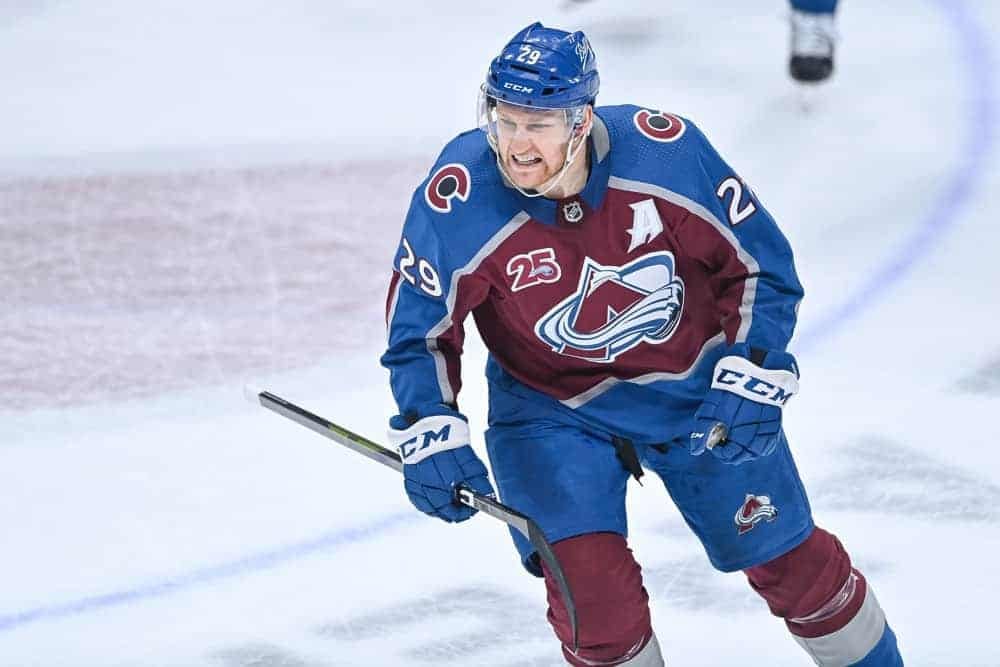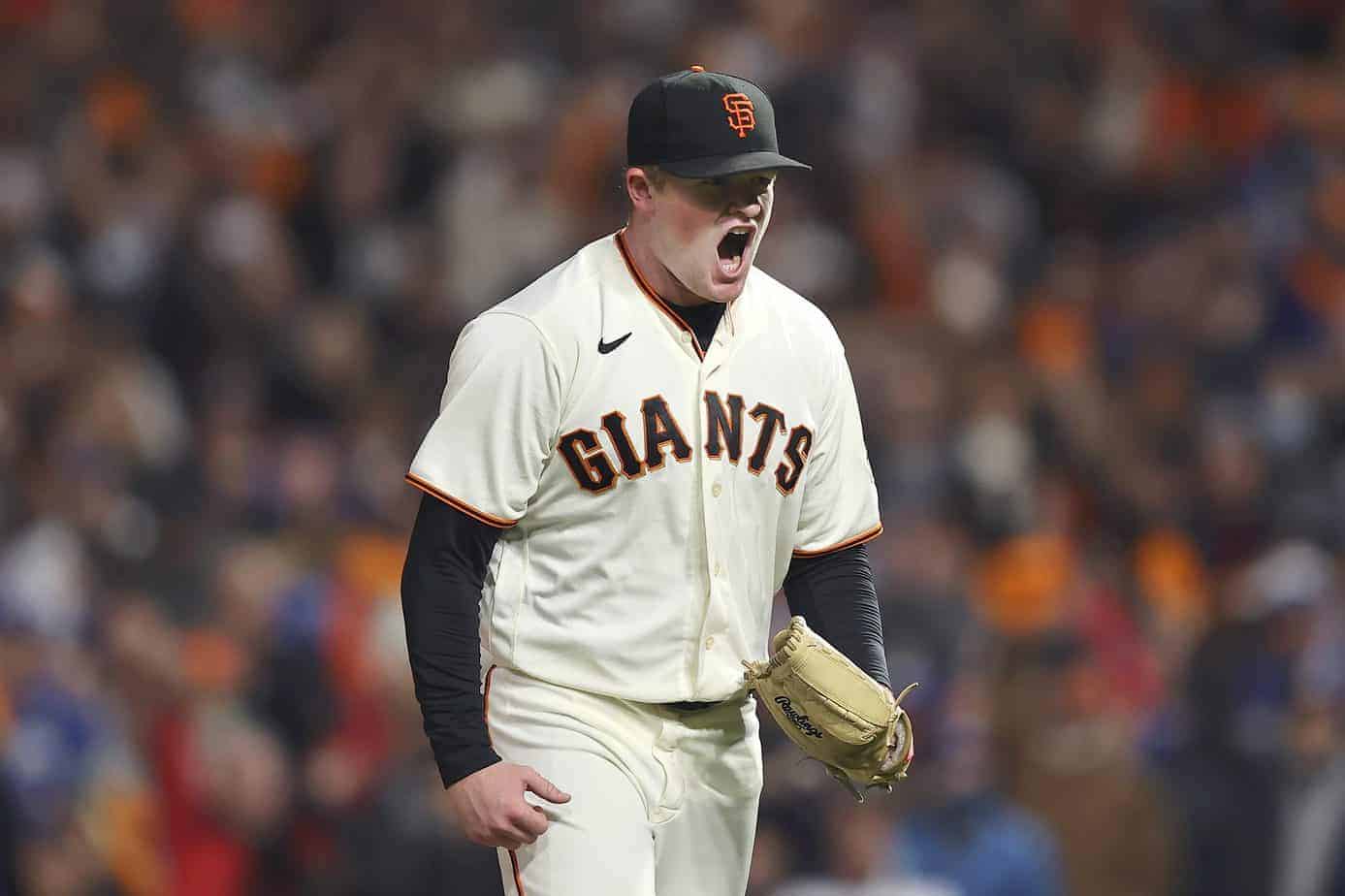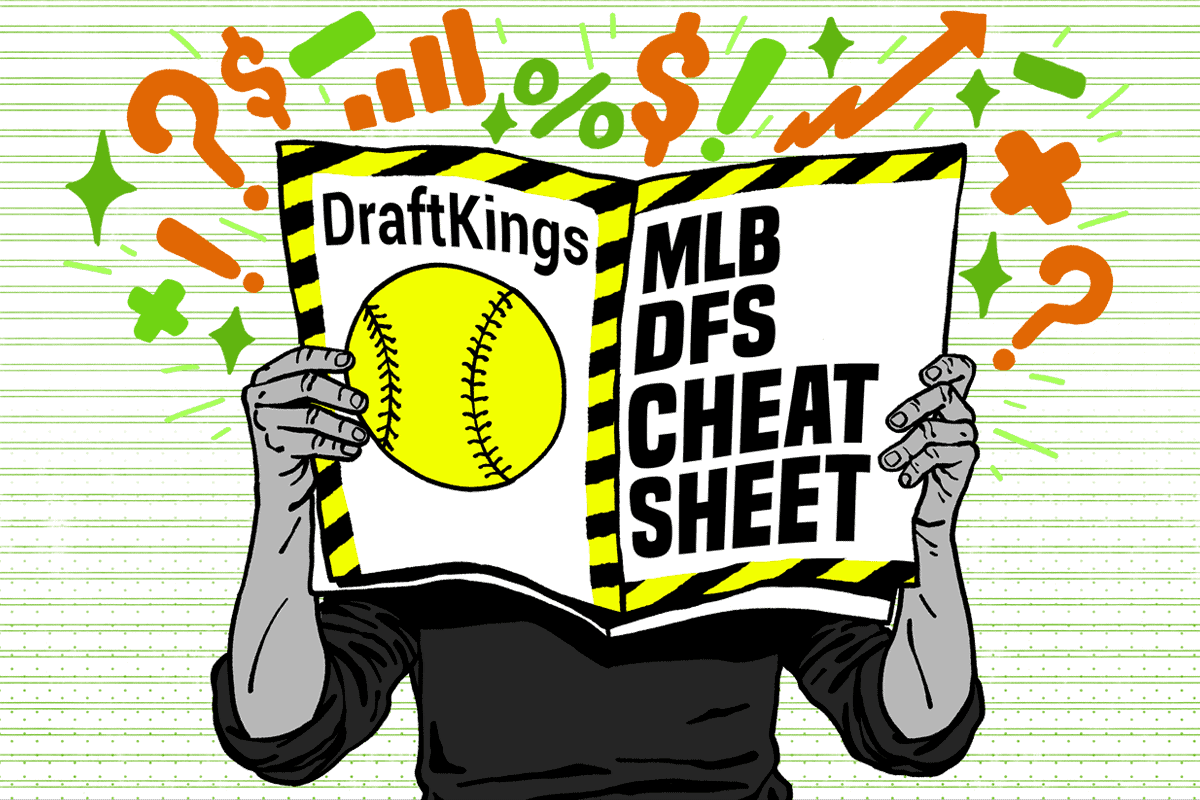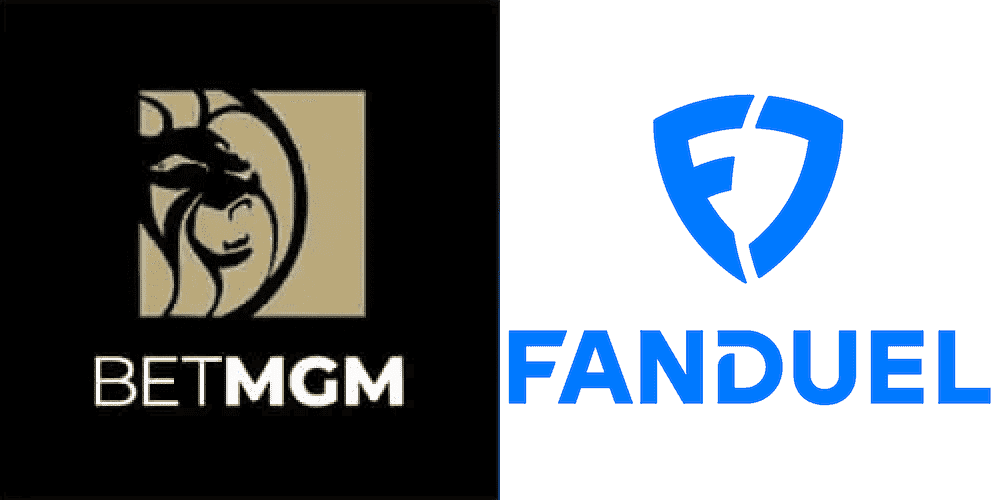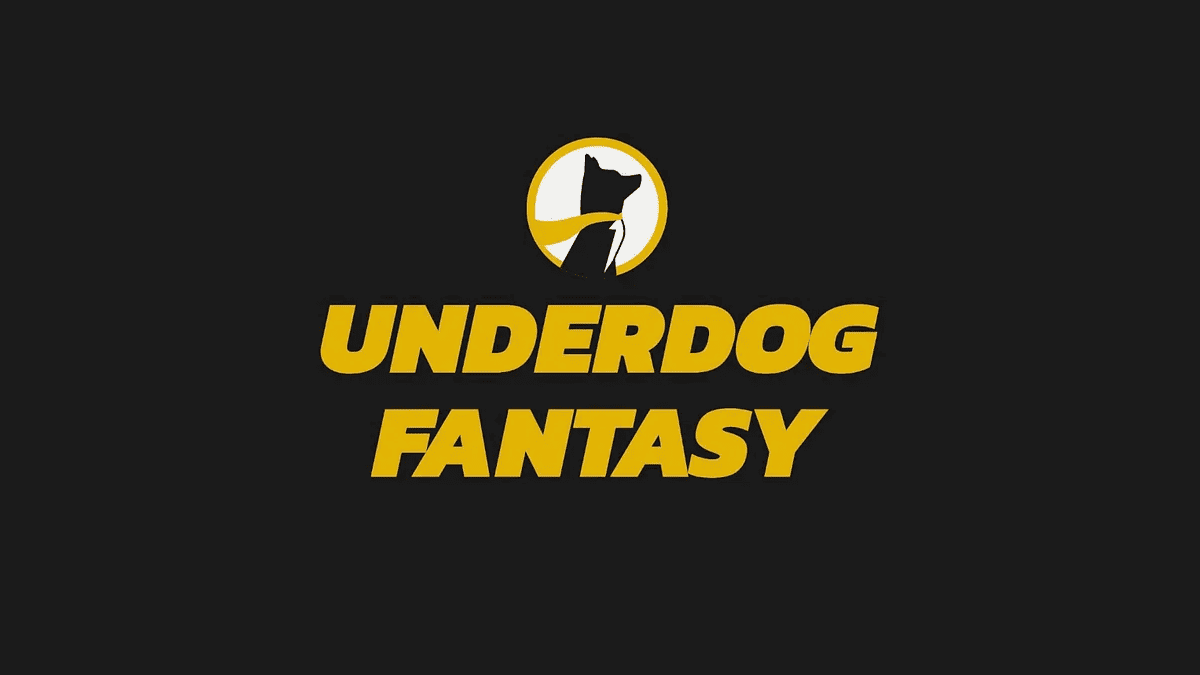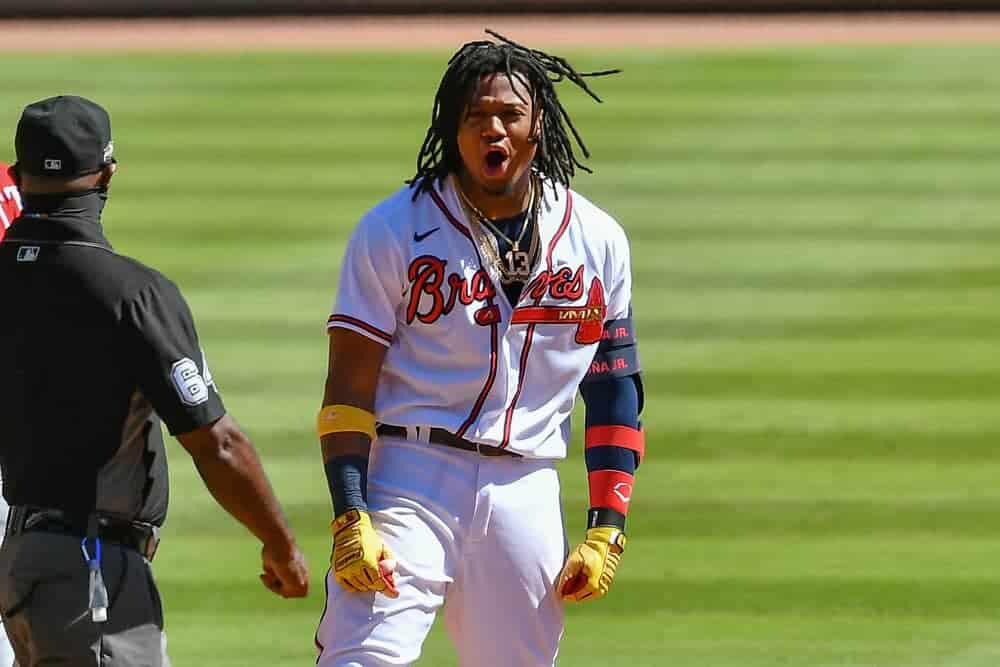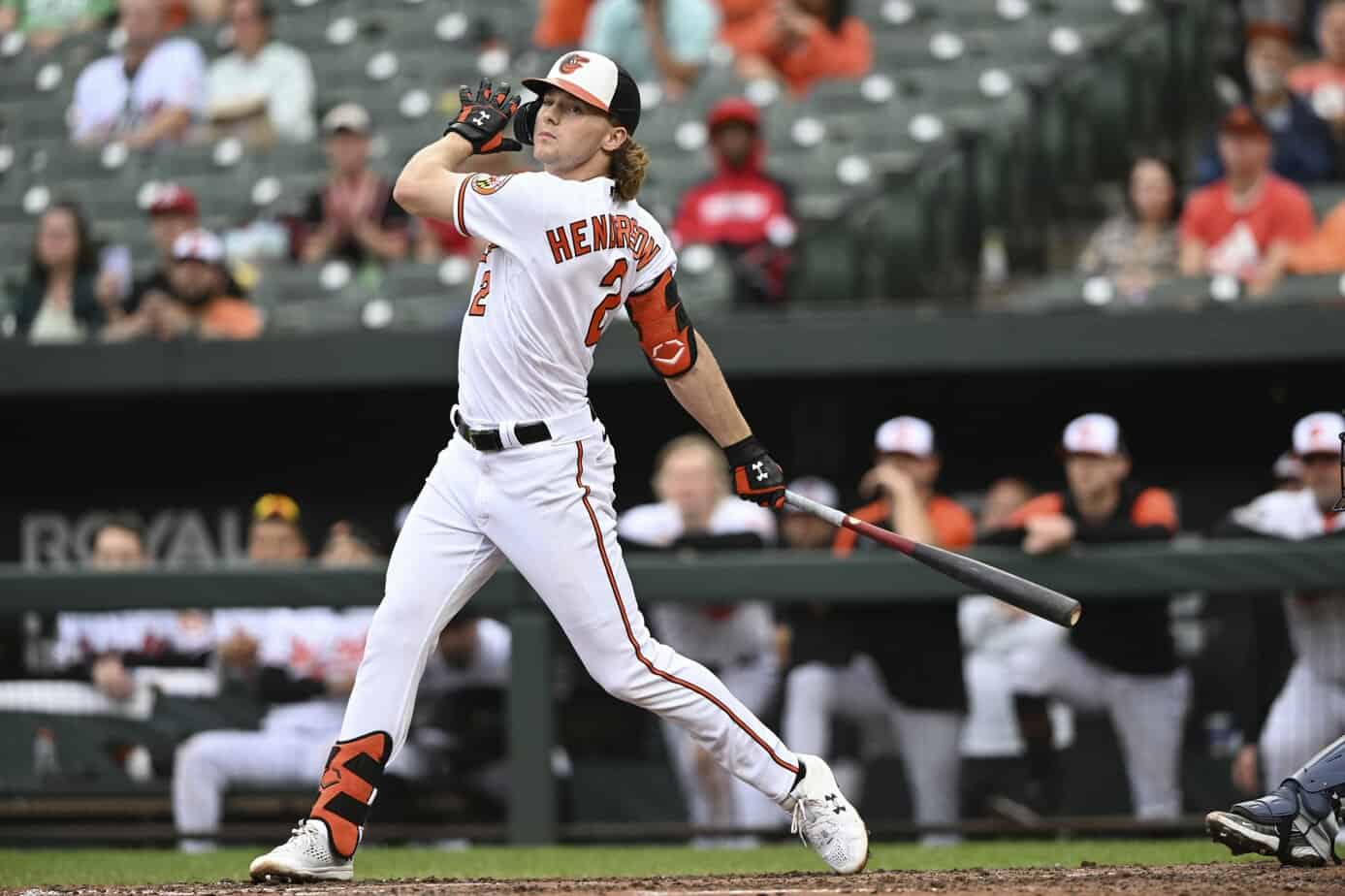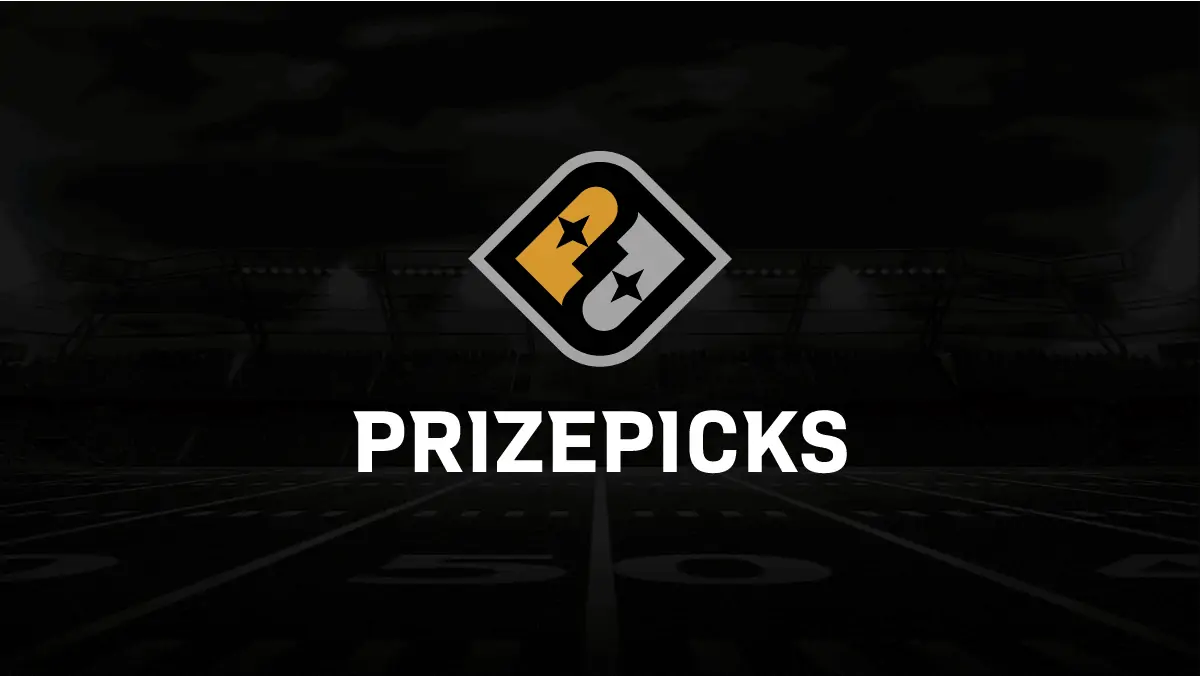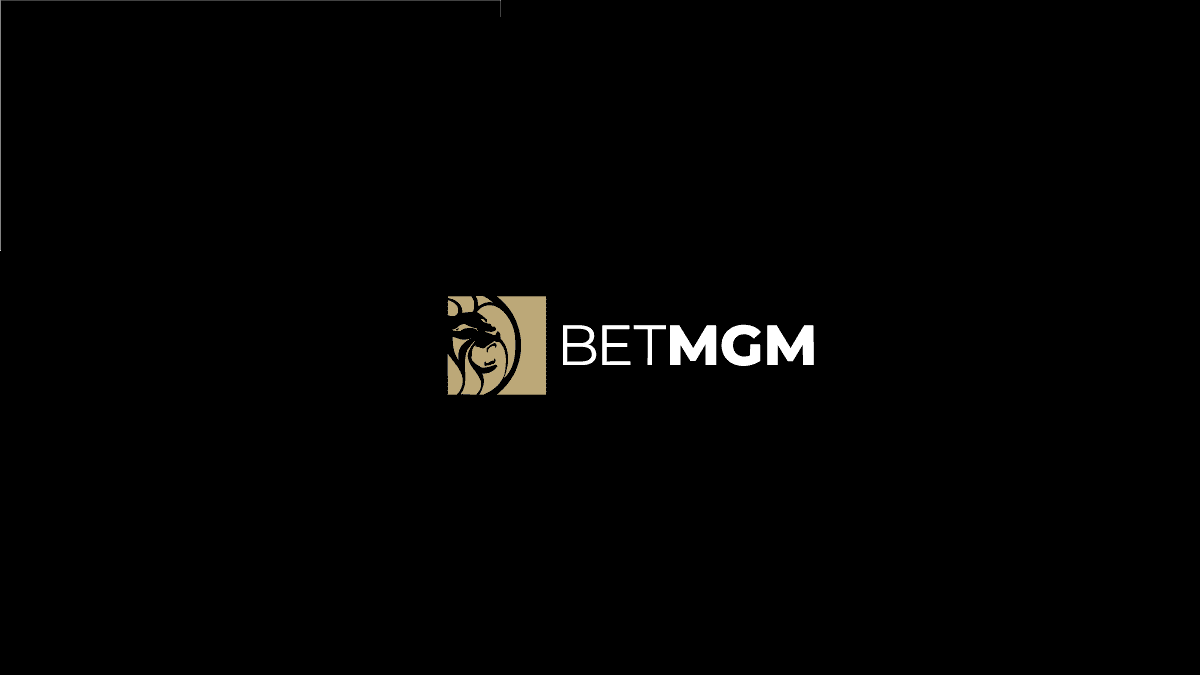No new NBA games does not have to mean the end of NBA DFS action. We here at Awesemo are committed to bringing you contests while sports are on hiatus. And that continues today with Awesemo’s NBA2K Daily Challenge, which continues off with the 1993-94 Houston Rockets taking on the 2012-13 Miami Heat.
Here’s what we’re doing: over the next few weeks, we’re giving away $20,000+ in prizes in FREE TO PLAY contests based on simulated NBA games that will air on YouTube and Twitch streams involving your favorite Awesemo personalities. There will be Daily Contests where you are asked to predict aspects of the day’s simulated game. Get the most correct answers and you’ll be eligible for great prizes. Prizes will vary from day-to-day. Enter now (and every day) by clicking on the following link:
https:www.awesemo.com/nba2k-daily-challenges
Through April 3, we’ll also be running a $15,000 Bracket Challenge with $10,000 to first. You’ve made your bracket picks and if you get the highest score you could walk away with $10,000.
In addition, FanDuel is running a contest based on our streams! For full details and to make your picks, follow the link http://https://bit.ly/FanDueleNBA. We have included some FanDuel-specific picks below.
Additional details regarding both the $15,000 Bracket Challenge and the Daily Contests, including full Terms and Conditions, are available here: https:www.awesemo.com/nba2k
Thank you for supporting us and we’re thrilled to have this opportunity to give something back. We aren’t going anywhere and hope you feel the same.
You can check out tonight’s stream below, kicking off at 7:30 EST.
Now, let’s dig into a preview of tonight’s matchup between the 1993-94 Rockets and the 2012-13 Heat.
The Teams
1993-94 Houston Rockets
The Rockets were an also-ran during the Bulls’ first three-peat. Hakeem Olajuwon was largely considered one of the league’s three best players, but the team made the Finals just once prior to 1993-94, and that came in Olajuwon’s second year in the league. In fact, the Rockets failed to make the playoffs two years before their first title run as Olajuwon missed significant time. They had, however, turned things around the next season in 1993, earning the second seed. After Michael Jordan retired, the Rockets, Sonics, Knicks and Suns were viewed as the teams most ready to ascend the throne abdicated by Jordan.
The 1993-94 Rockets were quintessential early-90s basketball in that they were built around their bigs. Olajuwon was the best player in the league, winning NBA MVP, and Otis Thorpe was second on the team in scoring, rebounding and minutes. With their outstanding rim protection and athleticism on the perimeter, Houston ranked second in defensive rating and allowed the fifth-fewest points per game. Their offense was middle of the pack, but they rode Olajuwon down the stretch and scored enough to win 58 games and finish with the second seed in the West.
Houston’s playoff run was a gauntlet of great 1990s teams. They dispatched of the Blazers in round 1, needed seven to knock off the defending West champions in Phoenix then took out John Stockton and Karl Malone in five to reach the Finals. There they faced the Knicks, headlined by the center matchup of Olajuwon and Patrick Ewing. And while the series went seven, Olajuwon led everyone in scoring in all seven low-totaled games, and Houston was able to knock off the Knicks after slipping behind 3-2.
2012-13 Miami Heat
No team in the last few decades inspired ire and vitriol quite like the Heat of the early 2010s did. Other teams had more hateable figures, others played a more distasteful style and others were even more unbeatable. But no team assembled talent in quite the way that Heat team did, ripping out hearts of entire fanbases in excruciating fashion. It started with Dwyane Wade, the Heat lifer who had already won a title with them back in 2006. He reportedly recruited his friends, LeBron James and Chris Bosh, to join him in Miami as far back as the 2008 Olympics. They all were free agents and the Heat cleared the cap space to sign all three. And while teams like the Bulls and Cavaliers believed they were in strong contention to acquire at least one of the three players, they chose South Beach. James’ method of revealing his destination was especially poignant, as he announced his departure from his (sort of) hometown Cavaliers on national TV.
With the biggest Big Three imaginable, Miami was heavily favored to win the next half dozen championships — Miami held a massive rally to celebrate Bosh and James, at which James implied the Heat would win as many as eight titles. And after a slow start, they found their stride, winning 58 games and going unabated through the East to reach the Finals. But then, in shocking fashion, they lost to a Dallas team with nowhere near the star power, tabling LeBron’s first title for another year. That put a little extra pressure on the superteam in 2012, and they would again make it through the East. But this time, against the formidable Thunder, Miami would roll in five games to the group’s first championship.
Which brings us to 2012-13. A bit of the pressure of that first title was relieved, so the constant scrutiny of James and company was a bit relaxed by this point And it showed, as Miami put forth their best season yet with more free-flowing dominance, winning 27 straight at one point and cruising to a league-best 66 wins. James won his fourth MVP in five years and Miami again looked to be huge favorites to come out of the East. And in the first two series, that held true, as they toppled the Bucks and Bulls while dropping just one total game. But then Miami faced a young, exciting Pacers team. They took Miami to seven and the Heat needed every ounce of James heroics along the way, but Miami finally took down the Pacers with a dominant Game 7 win. That set up a battle with the veteran Spurs in the Finals.
Perhaps the previous series took a lot out of Miami, because the Spurs had them on the ropes and seconds away from sending LeBron to another disappointment. San Antonio, up 3-2, had a three-point lead with almost no time left. LeBron took a 3 to tie the game, missed, and Bosh skied to get the rebound. He kicked it to Ray Allen in the corner, who backpedaled behind the 3-point line and swished a contested shot with five seconds remaining. In overtime, the Heat held off San Antonio to send it to Game 7, where Tim Duncan would miss clutch shots down the stretch and the Heat would eke out the second of back-to-back titles.
Check us out on TWITTER, where we talk sports, share articles and have lots of giveaways. Just click HERE
The Studs
Hakeem Olajuwon – C – Rockets
Olajuwon had a sizable monkey on his back in 1993. He had been a top-five players for a decade, putting up blocks and rebounding numbers unprecedented for the modern era. Yet, his supporting cast had not materialized since Ralph Sampson left in 1987-88, and Olajuwon was stuck on the periphery of the Jordan era. He was still in his prime in 1993-94 — he won MVP that year, after all — but at age 31, he only had a few years of dominance left in him. Fortunately, with Jordan gone and the Bulls shrinking back to the pack, the window was wide open.
Olajuwon’s numbers that year were not even the most gaudy of his career: 27.3 points, 11.9 rebounds, 3.7 blocks. He had recorded four blocks a game three times before that season. But he still dwarfed his competition and took home league’s top honors. In his career, Olajuwon would lead the league in rebounds twice and blocks three times, winning Defensive Player of the Year in 1992-93 and 1993-94. He made 12 All-NBA Teams, 12 All-Star appearance and nine All-Defensive Teams. He is also the NBA’s all-time leader in blocks with over 500 more than second-place Dikembe Mutombo. In short, Olajuwon is arguably the greatest two-way center of all time.
LeBron James
We covered LeBron’s full career in depth last week — read that HERE — but this 2013 version may have been the peak version of him. He has scored more, rebounded more and assisted more at other points in his career, but no LeBron season was ever this efficient, this perfect with the ball in his hands. He averaged 26.8 points 8.0 rebounds and 7.3 assists with a career-low 3.0 turnovers a game. His 56.5 shooting percentage ranked fifth in the NBA that year, trailing four rim-running centers. So in essence, whenever LeBron had the ball in his hands that year, good things happened almost exclusively. This was also when LeBron revealed a fully fleshed-out post game that finally cemented him as arguably the most complete player of the modern era. As a result of this dominance, James won his second MVP in a row and his fourth in five years.
Dwyane Wade
Though he is unquestionably the second-best player of the 2003 Draft, Wade almost seems unheralded when compared to his friend and teammate LeBron. And yet, Wade’s accomplishments stack up with the very best shooting guards in the history of the NBA. He was a 13-time All-Star, eight-time All-NBA, three-time All-Defensive, a scoring champion, a Finals MVP and a three-time champion. He was even the best player on a title team that included a still-great Shaquille O’Neal. Through his prime, Wade was one of the most exciting, explosive guards in the league with the ability to get to the rim at will despite never having a particularly reliable jump shot. That showed itself with seven straight years of at least 24 points a game (some injury-shortened) and a career average of 22.0 a game.
When the Heat superteam first formed, Wade was nearly an equal to LeBron. LeBron was the game’s best player but Wade was no lower than third on those rankings at the time, and he was just a year removed from a scoring title. And even with LeBron and Bosh occupying usage, Wade still averaged 25.5 a game in 2010-11. His numbers would dip a little the next two seasons, but Wade was still a 20-point scorer in 2012-13 and shot over 52 percent from the field. He was more selective, more efficient and still every bit as dangerous. Plus, unlike his teammates who leaned more towards affability at that time, Wade relished in the heel role. He sauntered to the floor, strut after made shots, basked in boos. He appreciated that he had assembled a villain squad and played it up to perfection.
Chris Bosh
Bosh will always be the third wheel of this group, and because of that, people may object when he ultimately makes the Hall of Fame. Despite those impressions, Bosh was one of the best big men in the league for a decade and sacrificed a ton to win in Miami. In seven season in Toronto, Bosh made five All-Star teams, scored at least 22 a game in five straight years and thrice averaged a double-double. The five seasons prior to joining Miami, he took over 15 shots a game. That numbers dipped below 14 in 2011 and was down to 12.3 by 2012-13. Still, Bosh made the most of his usage with 16.6 points a game on 53.5 percent shooting in 2013 while also serving as the team’s primary rim protector.
Those who watched Bosh in his prime know he was an outstanding player — long, athletic and skilled with a steady outside shot that kept opposing big men honest. His 11 All-Star trips may seem like a lot considering his prime years were as the third-best player on two title teams, but Bosh’s numbers would have looked far more impressive had he been more selfish. As it is, he has a strong legacy with two NBA franchises, a pair of rings and a Hall-of-Fame resume.
The Role Players
Rockets
Otis Thorpe – Thorpe was Olajuwon’s right-hand man in many ways. He finished second on the Rockets in scoring, and minutes and was the only player on the team who had been to an All-Star Game. As Olajuwon played the finesse role as an agile big man, Thorpe served as more of a grinder, and the two made a formidable duo down low.
Vernon Maxwell – In tonight’s matchup, Maxwell will likely be Houston’s primary 3-point threat. He took 5.4 a game in an era where that was relatively uncommon. And though Maxwell only hit at 29.8 percent, he was still a decent scoring threat, averaging 13.6 points a game.
Robert Horry – This was before Horry became renowned for his clutch shots, but his reputation would be bestowed just one year later when he hit a game-winner in the Western Conference Finals. However, this version of Horry was in his second season and was merely a big, athletic combo forward who could hit the 3 if need be. He averaged a solid 9.9 and 5.4 in 1993-94.
Kenny Smith – Smith is probably the second-most remembered figure from this Rockets run, likely aided by his current public status and key shooting in the next year’s Finals. In 1993-94, however, he was far more of a peripheral piece, finishing fourth on the team in scoring. He did, however, make 40.5 percent of 3’s on 2.8 attempts a game, so he may be Houston’s top 3-point sleeper.
Heat
Ray Allen – Allen’s alliance with the Heat ruffled all sorts of feathers with his former Boston teammates, as he chose to come off the bench for the defending champs to “ring chase.” And had he just been the sixth man and quietly poached a championship for himself, this would have seemed like a more heelish move. But as it turned out, Allen not only was a huge contributor in the regular season — 10.9 points a game and 41.9 percent from 3 — he also hit the biggest shot in franchise history in Game 6 of the Finals.
Shane Battier – “Glue guy” is an overused term, but it fit Battier to a T during his Heat run. He was a versatile player, capable of playing either wing or power forward, and defending every position on the floor. Offensively, his main role was being the pesky shooter who always found ways to be wide open for catch-and-shoot 3’s, and he shot extremely well that season (43 percent) while leading the team in attempts and makes from distance.
FanDuel Plays
MVP – Hakeem Olajuwon, Houston Rockets – $15,000
There is legitimate all-time great fantasy production in this matchup, so these spots are going to be tough to separate. We have seen both James and Olajuwon before in these sims and both filled up the stat sheet with points and peripherals. I cannot argue going with either or even Wade here. However, I am going to roll with Olajuwon as top producer for three reasons: One, he is Houston’s only consistent scoring threat; two, Miami does not have size at center to matchup with him for scoring or rebounds; three, Miami does a lot of their scoring at the rim, setting Olajuwon up for blocks.
Star – Dwyane Wade – $14,000
I am going with Wade here just for some minor lineup differentiation as I assume most will like Olajuwon and James at the top. The blueprint for Wade is Leandro Barbosa, the current tournament MVP. Barbosa has dominated with speed and slashing, which was exactly what made Wade a Hall-of-Fame scorer. Wade has good matchupa to slash, rebound and assist, so long as LeBron and Bosh do not dominate shots. If Wade gets the ball in his hands enough, I like his chances to get to 20 points.
Pro – Otis Thorpe – $12,000
I do not love Thorpe’s matchup with Bosh, but if Bosh drifts away from the basket, Thorpe could have some rebounds funneled his way. Plus, against the Mavericks in the play-in game, Thorpe put up a line of 10, three and a steal. The real reason I am rolling with Thorpe here, however, is because it allows for the 3-point Miami stack with Allen and Battier in the utility slots. Both were excellent shooters and have identical overall ratings for the Heat, so I like them to post some solid scoring numbers.
Looking for more NBA DFS picks content? We’ve got loads of articles, data, cheatsheets and more on the Awesemo NBA home page, just click HERE

